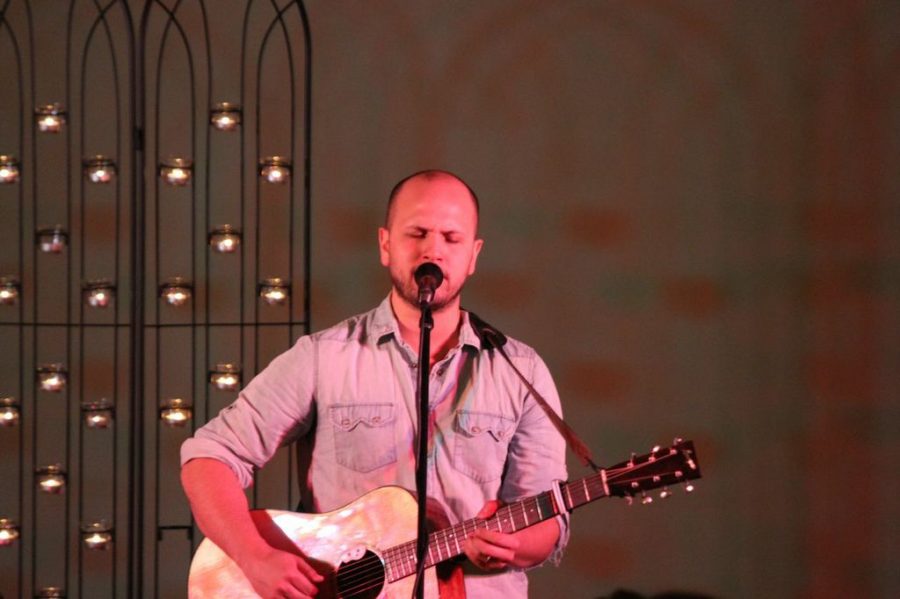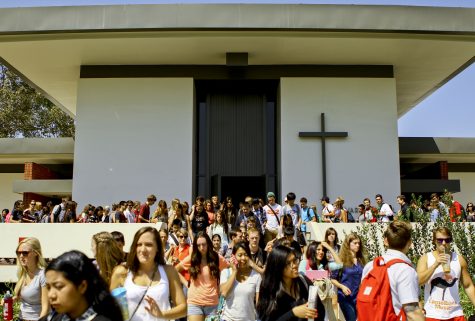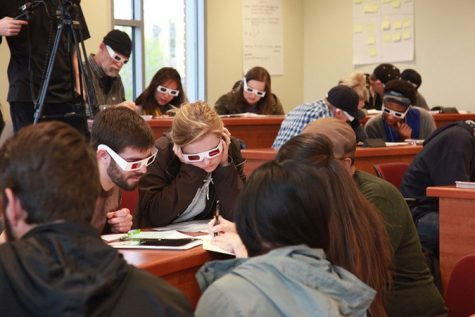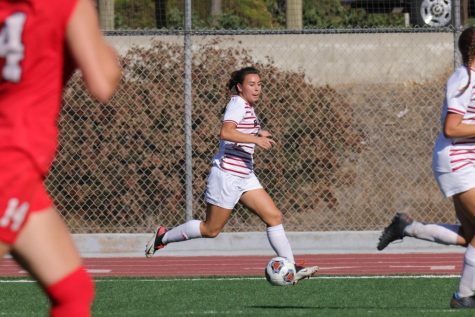Razor’s Edge conference examines art, culture and the little stories that make up daily life
Razor’s Edge conference aims to spur conversation on how micro-narratives fit into history.
David Gungor, lead singer of the band, The Brilliance, performs with guitar in hand earlier this year. The Brilliance will be playing for the Razor’s Edge conference being held on Biola’s campus from Feb. 27 – March 1. | Courtesy of qaumc.org
February 26, 2014
_1.jpg)
A tweet-sized news story. An attention-getting Buzzfeed headline. A one-minute video summing up someone’s life story. An Instagram caption describing the day. The way Brett McCracken, communications coordinator for the Center for Christianity, Culture and the Arts describes it, technology has made everything fragmented.
“There’s a million little micro-narratives and little stories that are being told every minute of every day, and everyone has a platform to tell their story, whether it’s YouTube or Facebook or Twitter or blogs,” McCracken said.
The Razor’s Edge conference, put on by the CCCA, will bring a host of writers, poets, painters, filmmakers and other artists to campus on Feb. 27 – March 1 to explore how these micro-narratives fit into one story encapsulating all of history.
“All the arts are in some sense about telling stories … so given the chaos of so many stories, what is the role of the metanarrative, especially for Christians who believe in the overarching story of God?” McCracken said.
CONFERENCE TO FEATURE DAVID GUNGOR AND OTHER 'CULTURE MAKERS'
The theme, “Transcending the iWorld: Extraordinary stories in a fragmented age,” will bring together acclaimed novelist and visionary-in-residence Ron Hansen, past visionary-in-residence Roberta Ahmanson, musical guest The Brilliance — a band comprised of members of Gungor — and others who the website describes as “some of the most gifted and intriguing culture makers at work today.”
Two of the conference’s goals, as described on the CCCA website, are to create a forum for open dialogue between Christian and non-Christian artists about art and faith, and to foster discussions across disciplines about contemporary visual culture. It will feature film screenings, performances, a gallery exhibition, author readings, roundtable discussions catered to specific disciplines and more, according to the website.
The conference takes the place of the annual Arts Symposium as a stipulation of the grant given to the the Center, McCracken said. It falls in the middle of the CCCA’s inaugural year of events, of which there will be about 50 total.
Departments involved in the arts across various disciplines, such as music, studio arts, cinema and media arts, Torrey and theatre have benefited greatly from the formation of the CCCA, McCracken said. The regular meetings and central calendar promoting all arts events on campus give every department a voice.
“Departments are in conversation with one another like never before,” McCracken said.
CONFERENCE TO KICK OFF THURSDAY, END SUNDAY
Sophomore art major Jessica Byrd plans to attend the conference and is looking forward to hearing artists across different mediums talk about integrating faith into their practice as well as people who don’t do art as an expression of faith. She views the subject as something even non-artists should think about.
“In order for us to think deeper about life, think deeper about beauty, it’s important to know the thought behind art rather than the skill of doing the specific vocation,” Byrd said.
She knows of people within the art world across Southern California, outside of Biola, who will be in attendance. It is necessary to have the conversation about what art is and why people should practice it today, she said.
“As Christians I always feel like we’re one step behind the contemporary culture and the new things that are coming out,” Byrd said. “We can’t stay relevant with that if we can’t think about other things that people are thinking about in a deeper way, much less with our faith.”
The conference kicks off Thursday night with a screening of the film “Short Term 12” and concludes Saturday evening with an opening reception in the art gallery and The Brilliance concert.
Q&A with David Gungor, founding member of The Brilliance
In October 2010, two members of the Grammy-nominated worship act Gungor started a new musical project based on church liturgy, thinking it would just be a one-time project. When it took off soon after, David Gungor and John Arndt starting touring along with a string quartet. After about a year-and-a-half, they took it on full-time. With his 3-year-old daughter coming in to hug him occasionally and his friends watching a movie in the other room, he discussed with the Chimes the current status of his band and their liturgical tunes.
What compelled you to come to Biola?
“Well, Biola had invited us to play this conference, and invited us to play a full evening concert, which we love — anytime someone invites you to play music in Southern California, you kind of have to say yes. So we wanted to be able to come do it, we love that area … we love playing in New York City, we love playing in LA, we love playing in Seattle and San Francisco. They’re cities that inspire us. … We also love playing in universities because they’re academic and learning-focused. So for us to be able to share our art but also get something in return somewhat, in that we’re inspired by the people of that place, it kind of brings the best art out of us.”
What does it mean to live a storied life?
“Throughout history usually people in some form or another … could tell me about your family’s history. You know, if you were born a cobbler’s son, you most likely were going to be a cobbler … you automatically had a story. In our post-modern world we’ve kind of de-storied a bit … instead of being given a story we’re able to kind of choose our own story. There’s a lot of great things about that but there are also lots of dangerous things about that. One of them being it becomes a really an “I” generation instead of, like, a part of something, it’s just individually my own thoughts … It’s basically like Americans, there’s so much freedom, but with our freedom we don’t really grasp what its like to be part of a full narrative. … That’s why we like church music, is somehow I can lean into the story of God and it gives me a narrative in which I can really understand life a bit more.
“So, I’ll give you an example. As I personally wrestle with doubt and I wrestle with life in general and pain and struggle, like a season for me that I resonate with is Lent … even starting off with Ash Wednesday, it starts off, where from dust you are, from dust you shall return, ash to ash, right? And so there’s something about that I resonate with. Life is so short, and I have this little amount of time, so I lean into that story much more than feeling like I need to make up my own story.”
How does The Brilliance incorporate story into music?
“I don’t write a lot actually, I only write when I feel like we’re kind of commissioned, like, ‘Hey we’re going to write for Advent’ … and when I do that, I don’t just write from like, ‘How am I feeling about Advent?’ I try to write with me as the kind of visionary architect of something. So I’ll talk to different people about, ‘What does Advent mean? What are the themes of that?’ So I’ll talk to an Anglican priest, I’ll talk to a Catholic priest, I’ll talk to an evangelical pastor, I’ll talk to a couple different theologians … and they’ll give me six big ideas of what Advent is … and as I write these six themes, I’ll write them instead of the perspective of how do I feel about these themes, I’ll try to write them in a way of what does the church say, and oftentimes from writing about that my own voice can come out.”







